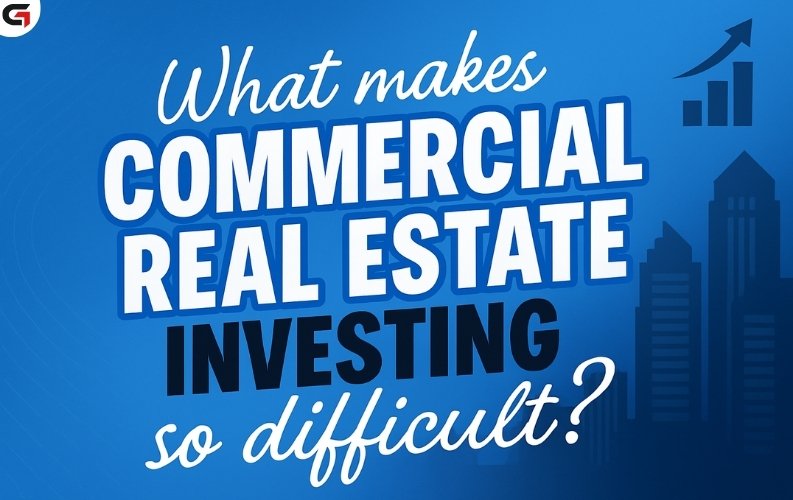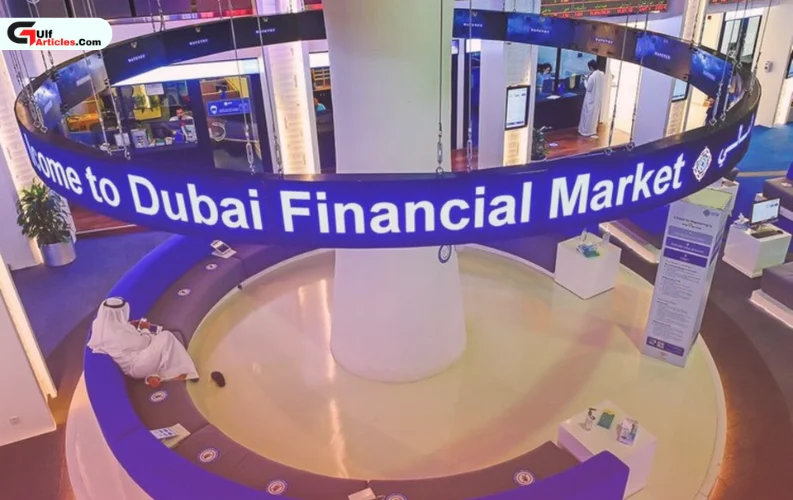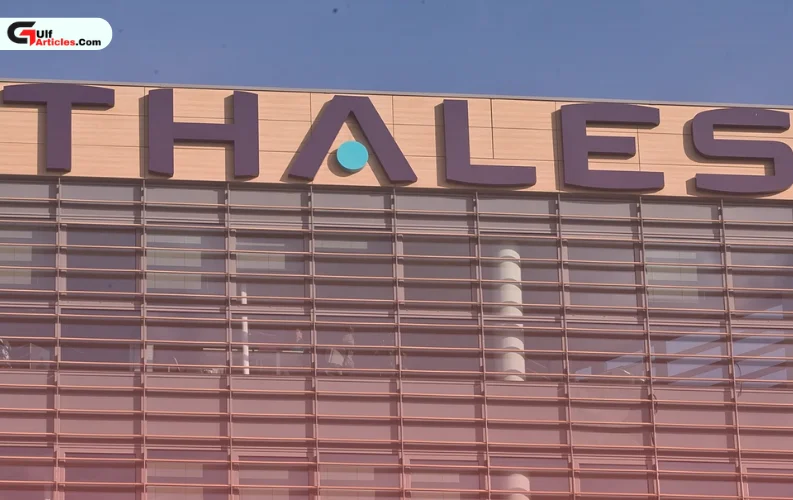Commercial real estate (CRE) investing is often hailed as one of the most lucrative paths to long-term wealth. The potential for recurring income, portfolio diversification, tax advantages, and asset appreciation makes it highly attractive to seasoned investors and aspiring entrepreneurs alike. Yet despite its promise, commercial real estate remains one of the most complex and challenging forms of investment.
Unlike residential investing, which typically involves smaller properties, lower capital thresholds, and more predictable tenant behavior, CRE operates in an entirely different arena. The market is driven by economic trends, lease agreements are multifaceted, and the financials demand deeper analytical acumen. Even experienced investors find themselves grappling with the multilayered nature of commercial deals.
So, what exactly makes commercial real estate investing so difficult?
This article explores the many obstacles that investors face when entering or scaling in the commercial property space. From capital intensity and market volatility to regulatory complexity and operational risk, we’ll break down the core challenges and explain why successful commercial investing requires more than just capital, it requires knowledge, strategy, and persistence.
The Complexity Behind Commercial Real Estate
To understand the challenges of commercial real estate investing, it's crucial to grasp how fundamentally different it is from other forms of real estate investment. Commercial real estate encompasses properties that generate income through business operations, including:
-
Office buildings
-
Retail centers and shopping malls
-
Warehouses and industrial parks
-
Multifamily buildings (with five or more units)
-
Hospitality properties like hotels
-
Land slated for commercial development
These asset classes each come with unique tenants, financing structures, lease arrangements, operational requirements, and exposure to economic shifts. As a result, commercial real estate is a high-reward, high-responsibility endeavor.
Also Like:- How Would You Build a Highly Scalable Real Estate Business?
1. High Capital Requirements and Financing Barriers
One of the most immediate challenges for investors entering commercial real estate is the significant capital required. Unlike single-family rentals or duplexes, commercial properties often cost millions of dollars. In addition to the purchase price, investors must cover:
-
Due diligence costs
-
Legal and accounting fees
-
Property inspections
-
Environmental reports
-
Closing costs and lender fees
-
Tenant improvements (TI) and renovations
Even with financing, most lenders require a 20–35% down payment, meaning investors must bring considerable equity to the table. Moreover, commercial loans come with stricter underwriting standards, shorter amortization periods, and recourse clauses that can put personal assets at risk.
For first-time investors, accessing this level of capital, especially without an established track record, can be a significant barrier.
2. Steep Learning Curve and Specialized Knowledge
Commercial real estate is not an entry-level investment. It demands a deep understanding of multiple disciplines, including:
-
Lease analysis (NNN, gross, percentage leases)
-
Tenant creditworthiness
-
Financial modeling (NOI, cap rate, IRR, DSCR)
-
Market dynamics by asset type and geography
-
Construction timelines and cost management
-
Zoning and regulatory compliance
Even evaluating a property correctly involves more than comparing comps, it requires income forecasting, scenario analysis, and operating expense breakdowns. These are areas where a lack of knowledge can lead to mispricing, overleveraging, or operational failure.
3. Complex Legal and Regulatory Framework
Investing in commercial real estate also means navigating a dense legal and regulatory landscape. Transactions are governed by state laws, zoning ordinances, federal tax codes, and environmental regulations.
Key legal complexities include:
-
Lease negotiations with detailed clauses on CAM (Common Area Maintenance), exclusivity, signage rights, and subleasing
-
ADA (Americans with Disabilities Act) compliance
-
Title encumbrances and easements
-
Land-use approvals and permits for redevelopment
-
FIRPTA and foreign ownership considerations
-
Local ordinances on parking, signage, or architectural design
Hiring lawyers, consultants, and land-use experts becomes non-negotiable, adding both cost and coordination effort.
4. Property Management and Operational Demands
Unlike residential properties where management can often be outsourced with minimal complexity, CRE properties require hands-on operational oversight, particularly when the asset is leased to multiple tenants or includes retail, medical, or logistics components.
Challenges in property management may include:
-
Tenant relations and lease enforcement
-
Maintenance of shared spaces, elevators, HVAC, and security systems
-
Responding to regulatory inspections or code violations
-
Managing service vendors and contractors
-
Monitoring energy consumption and environmental standards
For investors without a background in property management or a strong operations team, these requirements can be overwhelming and detrimental to profitability.
Keep Reading:- What Are the Commercial Real Estate Valuation Methods?
5. Tenant Risk and Vacancy Volatility
A major component of commercial investing risk lies in tenant dependency. Unlike residential units, where losing one tenant may slightly affect cash flow, losing a key anchor tenant in a retail center or a large office lease can cripple the entire property’s income stream.
Vacancy in CRE can persist for months or even years, depending on the property type, location, and economic climate. High vacancy means lost income, while property taxes, insurance, and maintenance still need to be paid.
Investors must also consider:
-
Tenant rollover risk (lease expirations with no renewals)
-
Business closures or bankruptcies
-
Rent abatements or deferred payment demands
-
Changing tenant needs (e.g., remote work impacting office demand)
Underestimating tenant risk can lead to serious cash flow disruptions.
6. Sensitivity to Economic Cycles and Market Trends
Commercial real estate is highly cyclical. Office buildings, retail centers, and hotels are directly tied to economic growth, employment rates, and consumer behavior. An economic downturn can impact:
-
Tenant demand and lease renewals
-
Rental rate growth
-
Occupancy levels
-
Access to capital or refinancing options
-
Property values and exit strategies
In addition, structural changes, such as the rise of e-commerce, remote work, or ESG standards, can disrupt entire asset classes over time. Investors must remain vigilant and agile in response to macroeconomic signals.
7. Time-Intensive Due Diligence and Decision Making
Commercial real estate deals take significantly longer to evaluate, negotiate, and close compared to residential transactions. The due diligence process is extensive, often requiring:
-
Property condition assessments (PCA)
-
Environmental site assessments (ESA Phase I and II)
-
Title reviews and legal opinion letters
-
Lease audits and tenant estoppels
-
Appraisals and feasibility studies
Each of these steps demands time, money, and subject-matter expertise. Failure to conduct thorough due diligence can lead to surprise expenses, compliance violations, or lawsuits down the line.
8. Limited Liquidity and Exit Options
Unlike stocks or even residential properties, commercial real estate investments are illiquid. Selling a CRE asset can take months or years, depending on market conditions, asset type, and location.
Factors that reduce liquidity include:
-
Large transaction size deterring average buyers
-
Specialized tenant improvements narrowing appeal
-
Financing contingencies for buyers
-
Appraisal mismatches affecting lending
In urgent situations, investors may have to sell below value or face refinancing pressure if loans come due during downturns.
Common Mistakes That Make CRE Investing Even Harder
While the inherent challenges of CRE are significant, many investors compound these difficulties by making avoidable errors.
Frequent Mistakes:
-
Overpaying based on projections rather than actuals
-
Underestimating capital expenditure needs
-
Failing to vet tenants or relying on verbal lease assurances
-
Ignoring neighborhood fundamentals (crime, transit, zoning)
-
Lacking a long-term hold strategy or exit plan
-
Trying to self-manage without operational expertise
-
Poor partnership agreements with unclear roles
These mistakes often stem from overconfidence, inexperience, or under-research, and they can derail even promising investment opportunities.
Read More:- Why Must You Invest in Commercial Real Estate?
What It Takes to Succeed Despite the Difficulty
While commercial real estate investing is undeniably challenging, it is far from impossible. Many investors thrive in the space by building the right foundation and mindset.
Keys to Success:
-
Education: Commit to continuous learning through books, seminars, and mentorship.
-
Team Building: Work with experienced attorneys, property managers, accountants, and brokers.
-
Data-Driven Decisions: Rely on market data, comps, and cash flow analysis over emotion or hype.
-
Niche Focus: Specialize in one property type or geographic market before expanding.
-
Risk Mitigation: Use conservative leverage, maintain reserves, and diversify across tenants or assets.
-
Long-Term Patience: Be prepared for slow progress, especially in value-add or ground-up projects.
Success in commercial real estate requires strategic thinking, disciplined execution, and the humility to seek guidance when needed.
Conclusion
Commercial real estate investing is difficult by design. The very elements that make it rewarding, long-term stability, income potential, and appreciation, also come with steep barriers to entry, complex variables, and significant risk. From capital constraints and legal intricacies to operational demands and market shifts, every stage of the investment process demands attention to detail, informed decision-making, and professional support.
However, for investors who commit to mastering the field, surround themselves with the right team, and approach the business with patience and discipline, commercial real estate can be one of the most powerful vehicles for wealth creation and financial freedom.
The path may be challenging, but the rewards, both personal and financial, can be well worth the effort.
You may also like:-






















